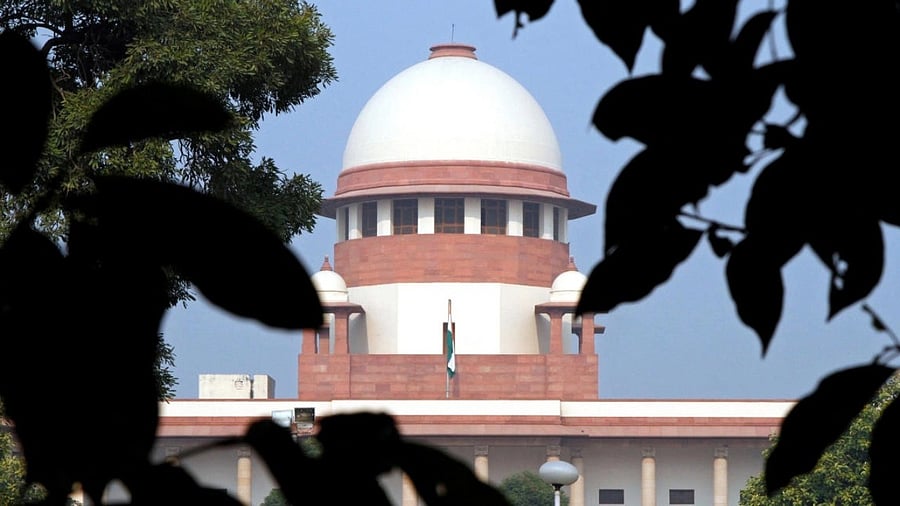
The Supreme Court of India.
Credit: PTI Photo
New Delhi: The Supreme Court has said the Governor, who is a part of the legislature, cannot withhold assent to bills without any further recourse, i.e., to virtually veto the functioning of the legislative domain by a duly elected legislature.
A bench of Chief Justice of India D Y Chandrachud and Justices J B Pardiwala and Manoj Misra said the Governor, as an unelected Head of the State, is entrusted with certain constitutional powers. The Governor cannot be at liberty to keep bills pending indefinitely without any action whatsoever, it said.
According to Article 200 of the Constitution, the Governor has three options when the bills reach him/her: to assent; to withhold assent; and to reserve the bill for the consideration of the President.
In its November 10 order in the Punjab case, released on Thursday, the bench said, "The power (vested in the Governor) cannot be used to thwart the normal course of lawmaking by the State Legislatures."
Consequently, if the Governor decides to withhold assent under the substantive part of Article 200, the logical course of action is to pursue the course indicated in the first proviso of remitting the bill to the state legislature for reconsideration, the bench said.
The court further explained that in other words, the power to withhold assent under the substantive part of Article 200 must be read together with the consequential course of action to be adopted by the Governor under the first proviso.
"If the first proviso is not read in juxtaposition to the power to withhold assent conferred by the substantive part of Article 200, the Governor as the unelected Head of State would be in a position to virtually veto the functioning of the legislative domain by a duly elected legislature by simply declaring that assent is withheld without any further recourse," the bench said.
The court said such a course of action would be contrary to the fundamental principles of a constitutional democracy based on a parliamentary pattern of governance.
"Therefore, when the Governor decides to withhold assent under the substantive part of Article 200, the course of action which is to be followed is that which is indicated in the first proviso. The Governor is under Article 168 a part of the legislature and is bound by the constitutional regime," it said.
The governments of Tamil Nadu and Kerala have filed separate writ petitions before the court against delay by governors in acting on the bills sent for assent, affecting the will of the people and the functioning of their administrations.
